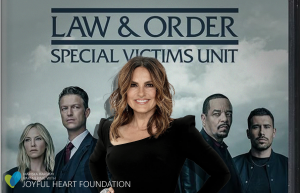While recent high-class directors such as M. Night Shyamalan and Micheal Bay have made a name for themselves by crafting masterpieces such as “The Sixth Sense” and “The Island,” they have also been behind some of the more recent critical flops such as “The Happening” and “Transformers 2.” Some would say these recent catastrophes are simply flukes, those same people should look at the superbly crafted films of Martin Scorsese.
Looking at the dozens of films pioneered by this man, it’s not difficult to see Scorsese was born to direct films to not only entertain us but to educate us about the surounding world.
From the brutal and gritty moments found in the depressing tale of a cabbie in “Taxi Driver,” to the psychologically intense sequences depicted in a rundown asylum in the recent release “Shutter Island,” Scorsese never fails to make you contemplate what is happening and why the events proceed the way they do.
Scorsese is without a doubt one of the best directors of all time and proves it with a diverse catalog of classics.
“Taxi Driver” (1976)
“Taxi Driver” is one of the darkest personal stories you will ever see, as a seemingly normal taxi driver becomes a crazed vigilante.
The film starts out fairly simple with a young Robert DeNiro starring as Travis Bickle, a Vietnam veteran who was dishonorably discharged from the Army for reasons unknown and is in search of a job to support himself.
From there, it becomes apparent Travis is more than a simple cab driver in New York City – he is a man who despises the world which bores him and hates the people around him who commit unnecessary violence toward each other in a world which has more than enough of that.
As the film progresses, Travis becomes more tormented with these outrages, and it shows through both his outward aggression to those who oppose him and the simple expressions displayed on his tired face that show the audience this is something more than just disagreeing with society – it’s being disgusted with everything it has to offer.
When Travis finally snaps in the end, it makes for some of the best realized moments in any psychological film to date, while paving the way for a young DeNiro to show the world what exponential talent he has in front of a camera.
“Goodfellas” (1990)
Gangster movies such as “Public Enemies” and “Road to Perdition” did an adequate job of showing an audience what gang violence is capable of, but it never captured the brotherhood developed between dedicated gang members.
“Goodfellas” goes above and beyond this with stellar acting throughout its A-list cast and its well-crafted narrative about the developing life of an actual gangster.
The film starts off with Ray Liotta as Henry Hill, a young gangster who at the time is involved with the assassination of a rival gang member and for the first time realizes the seriousness of what it means to be a part of something that requires undying loyalty in the worst of circumstances.
However, this doesn’t stop him from admitting “as far as I can remember I always wanted to be a gangster.” It shows us that even as a young boy, Henry always felt he was destined for something more than school could offer him.
The film progresses from Henry’s adolescent experiences with making deliveries for a local gang to rising up as one of the head king pins in New York, becoming involved with high stake drug trades and several assassinations. This is bar none the essential gangster film that anyone with a remote interest in the history of the gangster life style should see from its subtle beginnings to its brutal and desperate ends.




